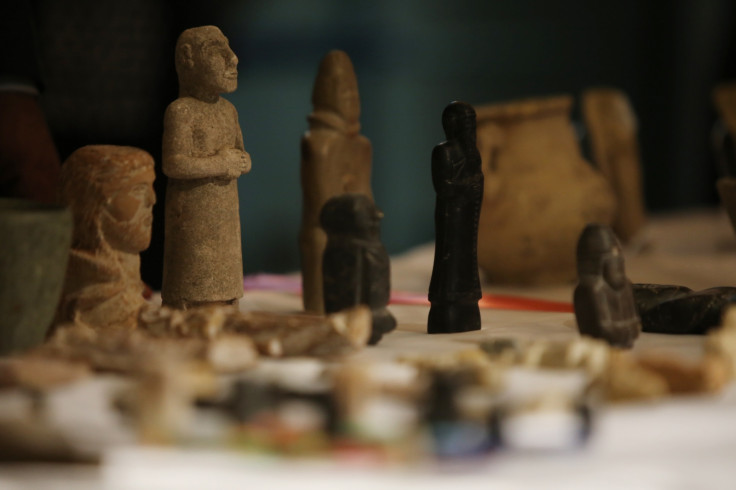Isis: Museums issue 'red list' to help spot smuggled Iraqi antiquities

Museum experts from around the world are compiling a "red list" of Iraqi antiquities at risk of being looted and sold on the black market.
The International Council of Museums held a meeting at the Louvre Museum in Paris, on Monday, (1 June), to establish the types of object at particular risk of being smuggled out of the country and sold illegally.
The Council hopes to alert both border guards and potential buyers, and the list will encompass types of objects including effigies of ancient Mesopotamian gods to 19th century artefacts from the Ottoman Empire.
Other objects include coins, statues and stone seals.
In recent months extremist Sunni organisation Isis, had destroyed a number of ancient sites in territory in northern Iraq it controls, and smashed statues and other artefacts it considers idolatrous.

The group is also believed to have partly funded its operations through the illegal sale of antiquities.
"In recent months we have witnessed massacres of minorities in Syria and Iraq but also the destruction of priceless works of cultural heritage," Louvre director Jean-Luc Martinez said at a press conference, reports AFP.
"These are two parts of the same strategy that has been described as 'cultural cleansing' which seeks to erase entire segments of human history," he said.
ICOM president Hans-Martin Hinz said that since 2000 the organisation had published "red lists" for 25 countries, with proven results.
Art dealers should "stop buying objects that come from Syria and Iraq," he said.
The ICOM represent museum professionals in 137 countries.
© Copyright IBTimes 2024. All rights reserved.






